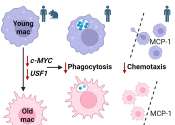The term adult has at least three distinct meanings. It can indicate a biologically grown or mature person. It may also mean a plant, animal, or person who has reached full growth or alternatively is capable of reproduction, or the classification legal adult, generally determined as a person who has attained the legally fixed age of majority; as opposed to a minor.
Adulthood can be defined in biology, psychological adult development, law, personal character, or social status. These different aspects of adulthood are often inconsistent and contradictory. A person may be biologically an adult, and have adult behavior but still be treated as a child if they are under the legal age of majority. Conversely one may legally be an adult but possess none of the maturity and responsibility that define adult character.
Coming of age is an event; passing a series of tests to demonstrate the child is prepared for adulthood; or reaching a specified age, sometimes in conjunction with demonstrating preparation. Most modern societies determine legal adulthood based on reaching a legally-specified age without requiring a demonstration of physical maturity or preparation for adulthood.
Some propose that moving into adulthood involves an emotional structuring of denial, suggesting this process becomes necessary to cope with one's own behavior, especially in uncomfortable situations, and also the behavior of others.









